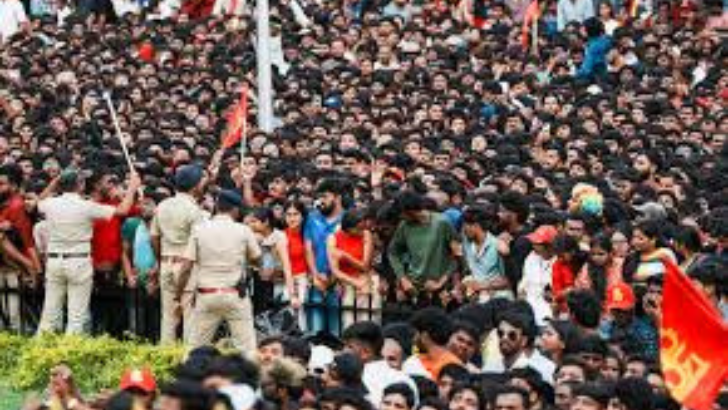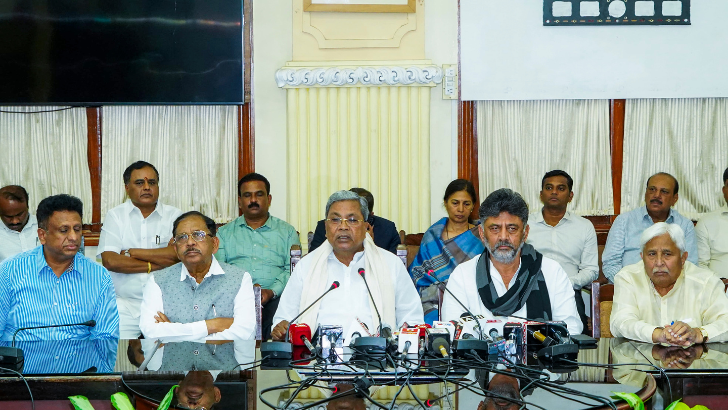Bengalureans brave rain to protest against Waqf Act
The protest, organised under the banner ‘Hum Samvidhan Ke Log’, is part of a growing national movement demanding the repeal of the law, which many deem unconstitutional.
PTI
-
Muslims and civil society volunteers protest against the Waqf Act 2025 at Freedom Park in Bengaluru on Sunday (Photo: Mohammad Asad, Salar News)
Bengaluru, 20 April
Undeterred by Sunday evening’s downpour, hundreds of civil society activists,
students and Muslims gathered at Bengaluru’s Freedom Park to protest against
the controversial Waqf (Amendment) Act, 2025.
The protest, organised under the banner ‘Hum Samvidhan Ke Log’, is part of a
growing national movement demanding the repeal of the law, which many deem
unconstitutional.
"This isn’t
reform — it’s a systematic erosion of minority rights," protester Maria Hussain
told Salar News. "Today it’s Muslims. Tomorrow it’ll be Christians.
Eventually, it could be Hindus. This Act threatens the plural soul of
India," she said.
The amended law,
now called Uniform Waqf Management, Empowerment and Endowment Development (UWMEED),
is under fire for allegedly undermining the autonomy of Waqf institutions such
as mosques, madrasas, graveyards, and dargahs. Activists claim it centralises
control, bypasses community involvement, and ignores constitutional
protections.
Vinay Srinivasan, a
civil rights activist, pointed out that “lakhs of objections were submitted to
the Joint Parliamentary Committee, yet none were accepted. This Act serves the
Sangh Parivar, not the Muslim community.”
Activist Tanveer
Ahmed admitted there are issues of corruption in some Waqf boards but added,
“Cleaning is fine, but not by snatching community control.”
One of the biggest
concerns is the removal of the “Waqf by user” clause, which historically
protected religious sites based on long-standing public use. On 16 April, the
Supreme Court questioned this provision, warning it could wipe out the status
of many such properties.
The Supreme Courthas currently stayed new appointments under the Act and barred alterations to existing Waqf properties till 5 May. Protesters say their resistance will continue until the law is repealed. “We, the citizens, will not yield,” declared a representative from Hum Samvidhan Ke Log.
Leave a Reply
Your email address will not be published. Required fields are marked *








.jpg)

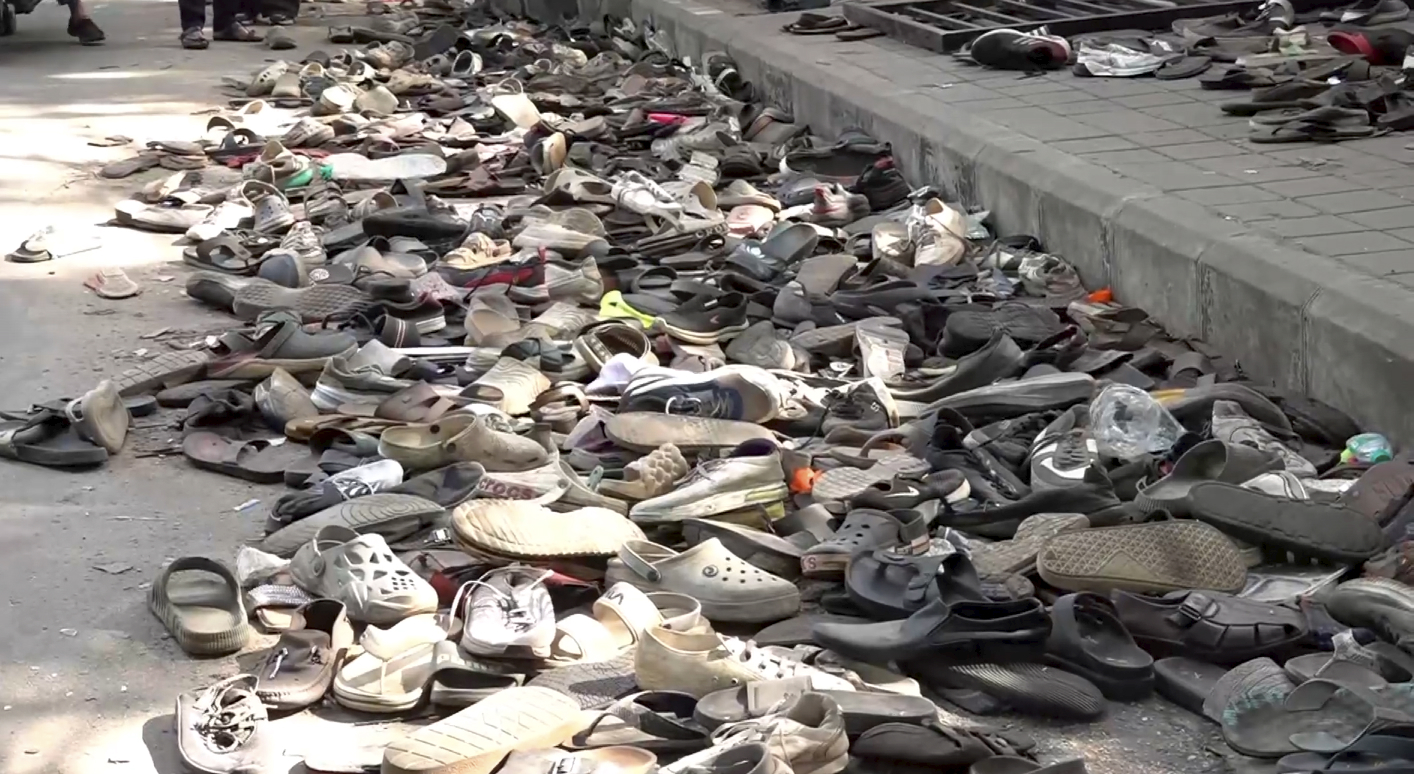
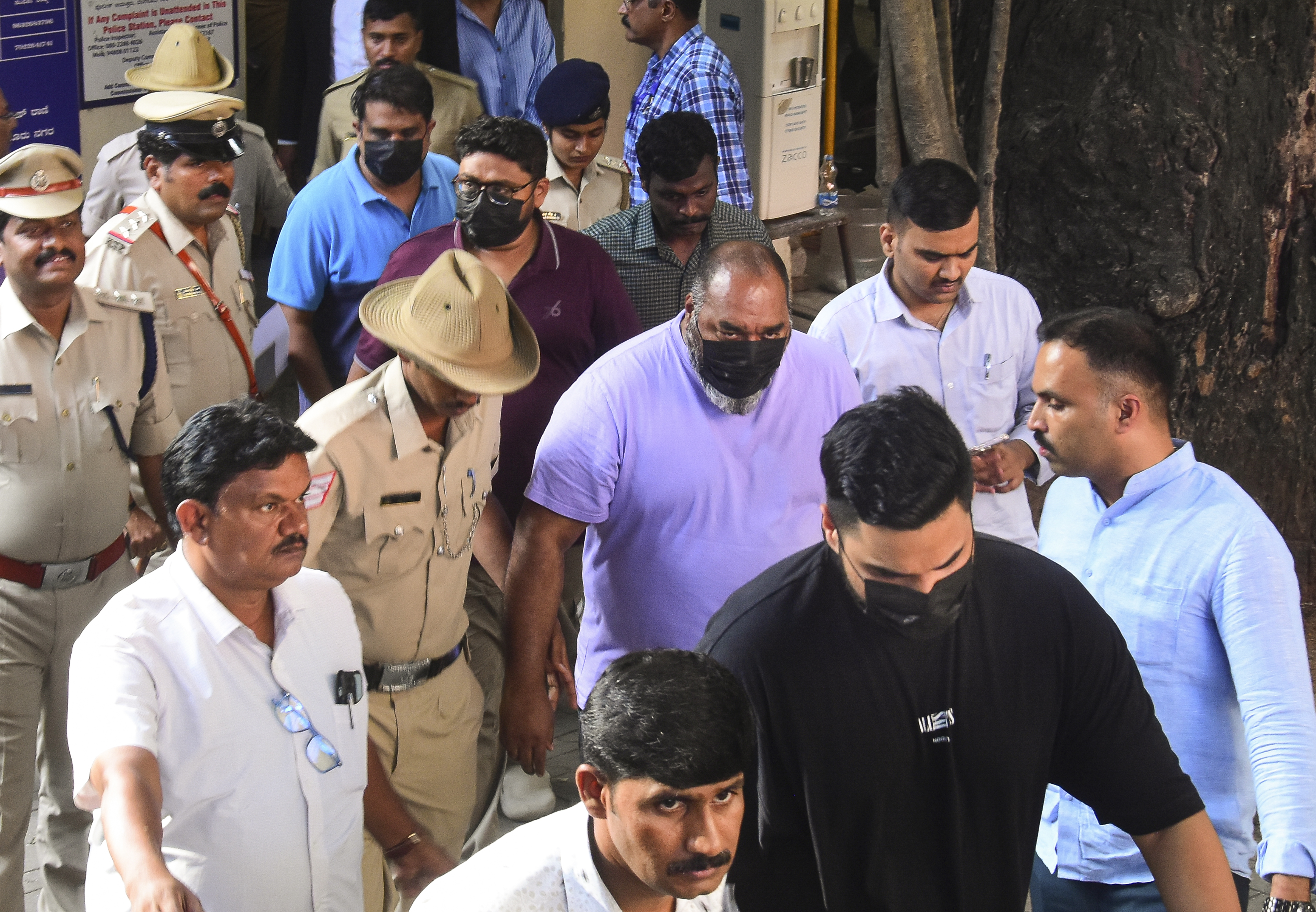

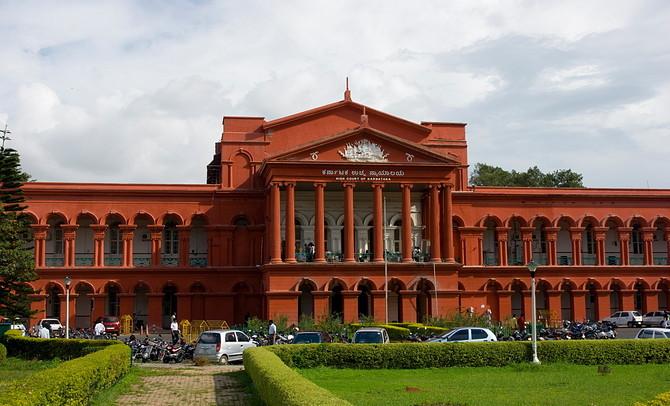
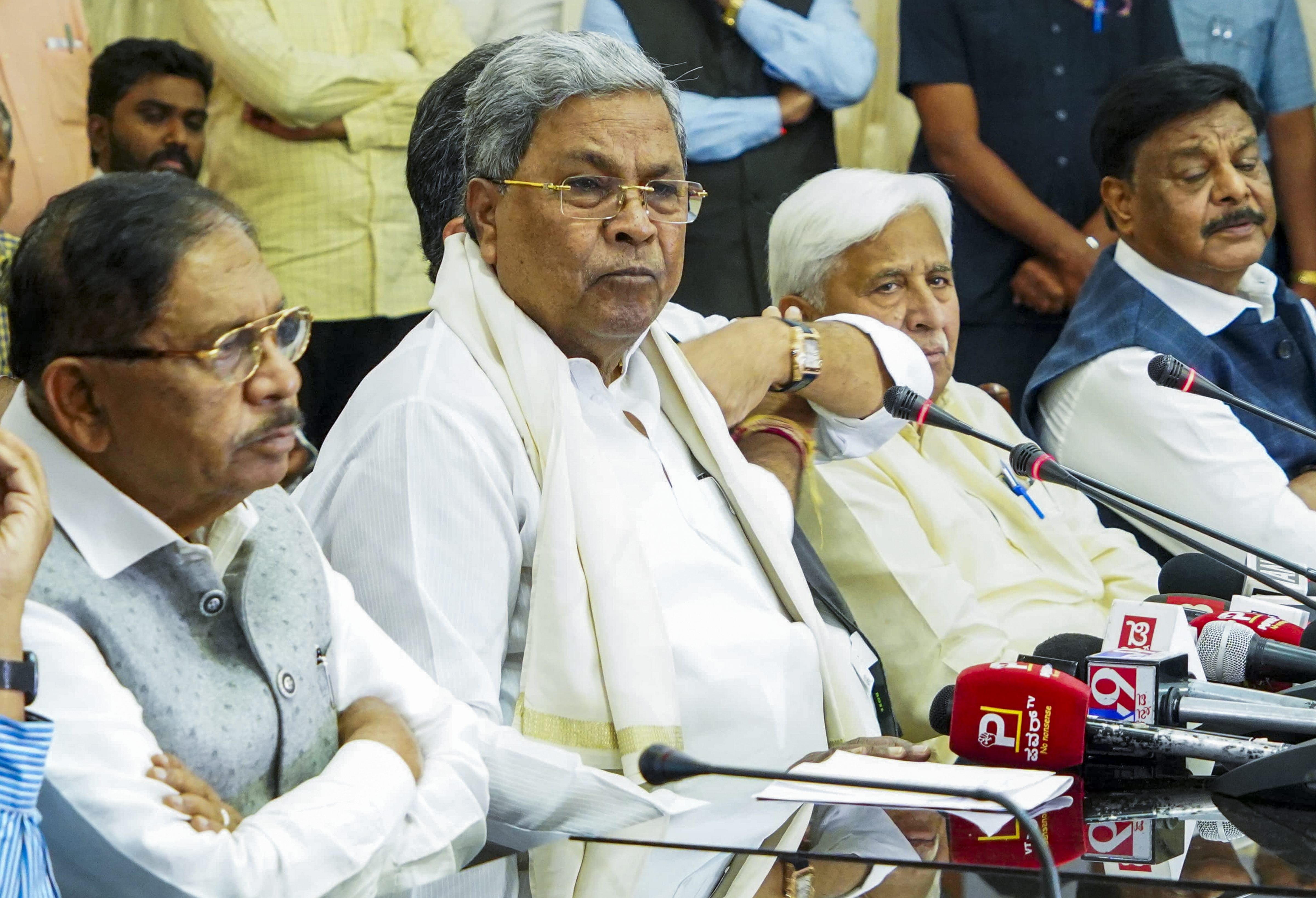
.jpg)
